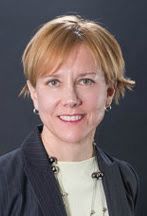Project Management Insights: When Everyone Is a PM, No One Is a PM

About 10 years ago, the #lifegoal in the industry was to become a Principal within one’s engineering or architecture firm. With that position came prestige, owner perks, financial and professional security, and decision-making authority on strategic matters. Managers were eager to trade in bonuses for any number of shares offered. Seats filled up quickly at seminars that taught “the business of the business.”
This trend soon brought unique challenges, and we consulted around those, too. Ownership is not the same as leadership; and many owners were poor leaders. Becoming an owner meant locking in with others in an important venture, and a lot was on the line for everyone; extending it had to become more selective. How do you tell an aspiring partner that he or she is not someone you’d go into business with?
Not all owners have the same responsibilities and skill sets nor deliver the same level of results. It’s often clear who are the strong contributors and weak links.
PM on the Rise
Today, fewer employees want to make the investment to become an owner and assume the onus of leading a firm. Instead, the role of Project Manager is the sweetest and most-coveted seat in the organization. Engineers and designers are keen for the opportunity, and the backlog of projects has companies scrambling to find and assign people to manage them.
In the haste to get projects started and avoid denying anyone the chance of becoming a Project Manager, firms make the mistake of conferring the role to anyone. Like the dilemma before with Principals, good intentions can produce unintended consequences:
• When everyone is a PM, no one is a PM. When I ask clients how many PMs they have, the headcount varies from day to day because “sometimes they are, and sometimes they aren’t.” Depending on a project’s size, today he or she may be a PM; tomorrow the same person may be working on a project under someone else. This isn’t a useful definition. If there are more PMs than designers or technical staff, the likelihood of creating confusion and diluting respect and standards for the PM role is very high. Even when subtitles are established (Senior, Assistant, I, II) to distinguish skill level, professional development frequently is generalized to save time and money.
Not everyone is suited to become a PM, and not everyone who steps into the role is fully equipped to ace it.
• So much for the marketing message. I’ve read a lot of marketing copy for engineering and design firms as well as heard dozens of pitches of how and why one firm is different, or better, than another. The opportunity to prove such statements true or false is through project delivery. In my previous column for Informed Infrastructure, “Is Project Management a Weakness in the Armor?” the inefficiencies discussed were within a 250-person engineering firm with four offices and solid revenue. Like many companies in the industry, the firm sells a good story, but underneath the veneer are projects going off the rails, quality concerns, disappointed clients and disenfranchised employees. Excellent project management culture that focuses on systems and people is a differentiator inside and out.
• This isn’t what I signed on for. Theoretical tools from a manual or a few webinars are not a healthy substitute for real project and field experience. Technical savvy and strong design know-how also are not future guarantees of project management success. Early problem recognition, relationship building, solution development, and acumen for profit and loss are just a few of the essential but trickier elements of project management often misunderstood and sometimes ignored. Not all tasks are glamorous, and bean counting isn’t what most of us would call fun, but if one wants to be in the role, he or she has to commit to all the tasks.
Project Manager is a challenging but extremely rewarding career path. If you’re considering it or mentoring a colleague who has potential, it’s important to understand the responsibilities, expectations and demands of the role as well as the ongoing learning that will be required. Some employees begging for the chance may not be quite ready; this has to be an honest discussion. Not everyone is suited to become a PM, and not everyone who steps into the role is fully equipped to ace it.
About Christine Brack
Christine Brack, PMP, is a Principal at ChrismarGroup, a training and consultancy firm; email: [email protected].


